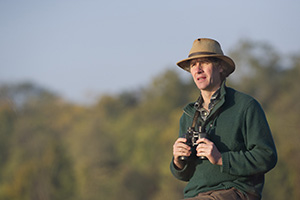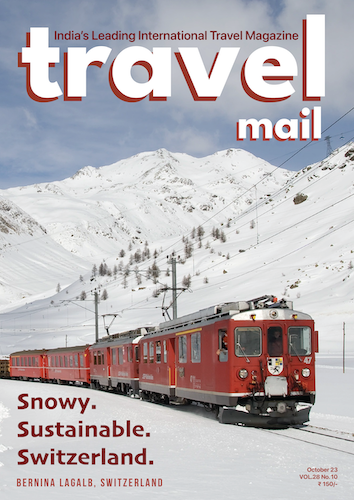
Julian Matthews, Chairman, TOFTigers
Photo courtesy: Bandu Mankar / Sanctuary Photo Library
[dropcap]L[/dropcap]et’s cut to the chase. The World Economic Forum’s latest report recognises that India is ranked 6th for its number of natural World Heritage sites – yet the attractiveness of its overall natural assets is a disappointing 113th, a ‘gap’ that ensures that tourism, a critical conservation tool is not prioritized by governments or supported significantly enough by private enterprises, even though it’s one of the 5T’s in the Government’s own National Development Strategy. Worse than this is the fact that this same report rates India’s environmental sustainability in Travel and Tourism at 134th in the world, with only Kuwait and a war-torn Yemen below it. This is a shocking place for a major powerhouse to find itself and highlights the reason why nature tourism charity TOFTigers campaigns so hard on sustainability in this sector. It’s also why tools that allow us to encourage, monitor, assess and highlight the very best, like TOFTigers’ PUG eco-friendly kitemark and the TOFTigers Wildlife Travel Awards make so much sense.
Sustainability in business is no longer an optional extra. It is fundamental for all travel and tourism going forward. We can’t wait for governments – we need to act individually and collectively now.
Now for some good news. Despite these negative statistics, nature tourism is winning a fight, even if we have not yet won the war. Nature based travel is turning the tide on wildlife conservation and on the tiger’s survival across South Asia. From a low of 1400 wild tigers in a few denuded reserves at the turn of this century, when both domestic and International tourism was small, we now officially have over 2400 wild tigers in India and growing numbers in Nepal too. But let’s be absolutely clear – we are in fact saving much more than a single species. WWF calculates that 830 million people depend on the water that tiger range forests release in Asia. Forests help to mitigate the very worrying effects of climate change on the subcontinent. If we save tigers we save whole ecosystems, millions of species and a host of other essential nature-based services for hundreds of millions of both urban and rural peoples. These services include important medicines, critical food sources and the quality of the air we breathe – besides our very own physical, spiritual and mental well being. Politicians may want economists to calculate the monetary value of these as justification for financing them or saving them – but fundamentally we all know they are in fact beyond value – or invaluable. We totally depend on them.
This new rural green economy is giving new livelihoods and new economic opportunities for once poor rural communities bordering these forests, decreasing rural poverty, enhancing living standards and raising local educational standards, as a new research report that TOFTigers funded highlights. Visitors in parks deter poachers, woodchoppers and illegal grazers and brings the spotlight to bare on a host of magnificent and invaluable wildlife and wildlands that few people cared about – even a few years ago. Opening up wildlife parks has also brought exciting nature experiences to millions of domestic and overseas visitors – enabling many to become passionate local advocates for conservation and protection.
You can join in this rising tide of hope and success, by nominating a great reserve or park you’ve enjoyed, a phenomenal nature guide or knowledgeable naturalist you’ve been with, a sensational ecolodge you stayed at or a ground breaking community project you’ve seen. We are looking for the ‘best of the best’ – a person, place or enterprise that represents where we all need to go, great examples to follow that ensure wilderness survives and wildlife can once again flourish across South Asia – for everyone’s benefit.
Julian Matthews, Chairman, TOFTigers
Now we’ve done the hard work – please help us by nominating or just voting online on www.toftigers.org/WildlifeTourismAwards



